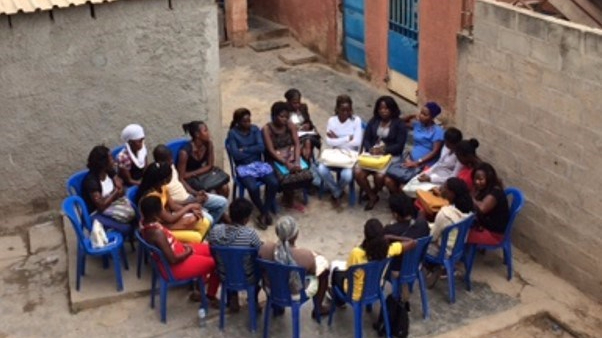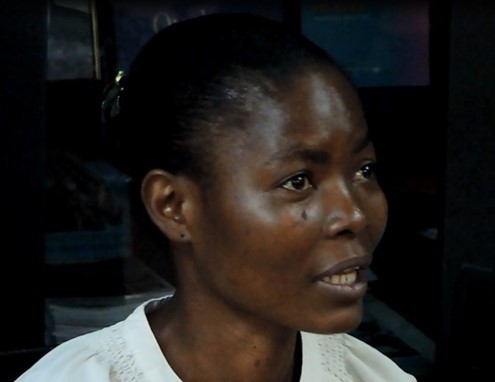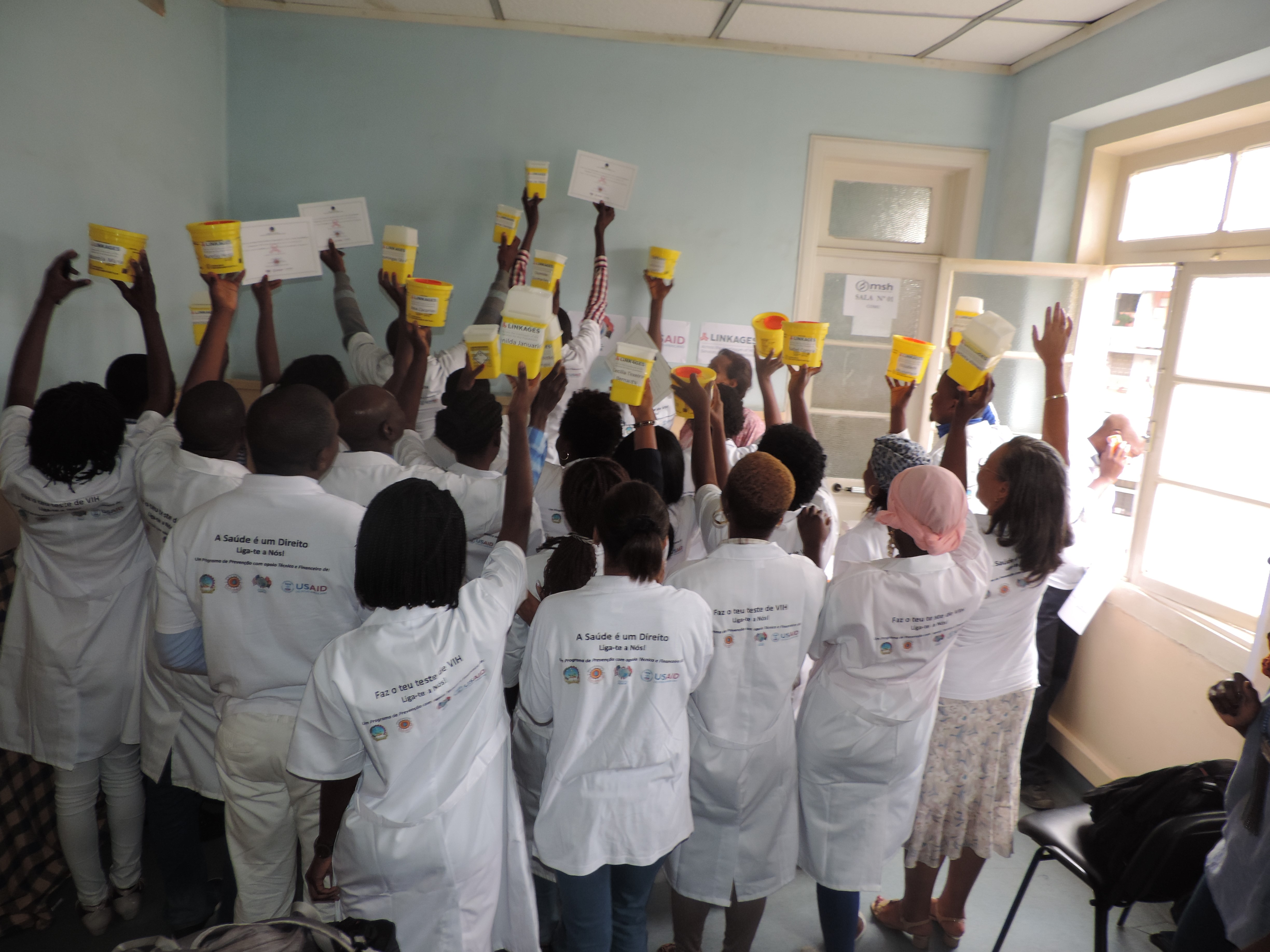Written by Celma Pedro, Technical Officer, Positive Living, Management Sciences for Health

ASCAM FSW peer educators and HIV testing counselors join together for a focus group facilitated by Angola’s Ministry of Health during the PEPFAR-GF joint cascade assessment.
Delfina da Costa worked eight years as a peer educator for female sex workers (FSWs) in her community in Angola, educating those at high risk for exposure to HIV. She frequented hot spots around town to share informative messages in a safe environment on how to stay healthy and prevent contracting or spreading HIV. She forged strong, trusting relationships with the women she helped, but Delfina wanted to do more. In October 2015, she was trained to be an HIV testing counselor.
“I always followed HIV testing on the side lines, watching carefully how it was performed on the women I referred. I always wanted to test. Now I can.”

Delfina da Costa works as an HIV testing counselor for FSWs in Angola.
Delfina administers HIV rapid tests at hot spots, screens FSWs for sexually transmitted infections, and consults with health care professionals about the specific needs of her clients. She also links HIV-positive FSWs to peer navigators and care support services. If a FSW does not want to meet with a peer navigator, Delfina supports the patient herself from the onset of treatment.
Delfina’s transition from peer educator to HIV testing counselor marked the beginning of professional development and advancement for peer educators working with key populations (KPs) in Angola. Her experience is unique, as members of KPs have not typically held positions of leadership or authority in the past, and KP-led HIV organizations are scarce. Until recently, giving KP peer educators the opportunity to train as HIV counselors was frowned upon by many civil society organizations (CSOs) in the country.
Since 2015, LINKAGES has partnered with Associação de Solidariedade Cristã Ajuda Mútua (ASCAM), a local nonprofit CSO in Luanda, Angola, and the first in country with an entirely KP-led management team. ASCAM began as an emergency support service during wartime; today, the organization works almost exclusively in HIV education. Together, LINKAGES and ASCAM recruit individuals from KP communities—primarily FSWs—to be peer educators. After serving in this position for at least one year, peer educators can train to become HIV testing counselors within their local communities. HIV testing counselor training is a two-week course with theoretical and health facility practicum requirements, conducted in partnership with the Angolan government.
Professional development for KP individuals in HIV prevention, care, and treatment services has come a long way in recent years. “When we started working in Angola in 2015, the only CSO that had key population peer educators was ASCAM,” says Ana Diaz, LINKAGES Angola program manager, “but the HIV testing counselors were not key population members. KP members had never been given the opportunity to train as counselors, but now they can.”

A group of newly trained community HIV testing counselors celebrate becoming certified by the Angolan government and LINKAGES.
Establishing more prominent roles for KP community leaders in the HIV prevention, testing, care, and treatment of individuals like themselves builds trust between health provider and patient, and strengthens referral uptake of KPs to HIV service providers.
The success of these trainings in reaching previously unidentified KP individuals has made other partner organizations aware of the benefits in providing opportunities for KP peer educators. LINKAGES has trained 23 KP HIV testing counselors to date, 16 of whom are FSWs. Becoming a counselor is a big step in establishing a career in health care. Having a training certificate from the government can open many doors to other projects that may even go beyond HIV prevention, care, and treatment services.
For Delfina and other HIV educators in Luanda, empowering FSWs within CSOs is an ongoing effort to promote more accurately representative leadership.
Fatima Zua, a FSW peer educator with ASCAM, says: “When we work to empower women [key population members], everyone wins. I feel they understand our needs because they were in our position before.”
